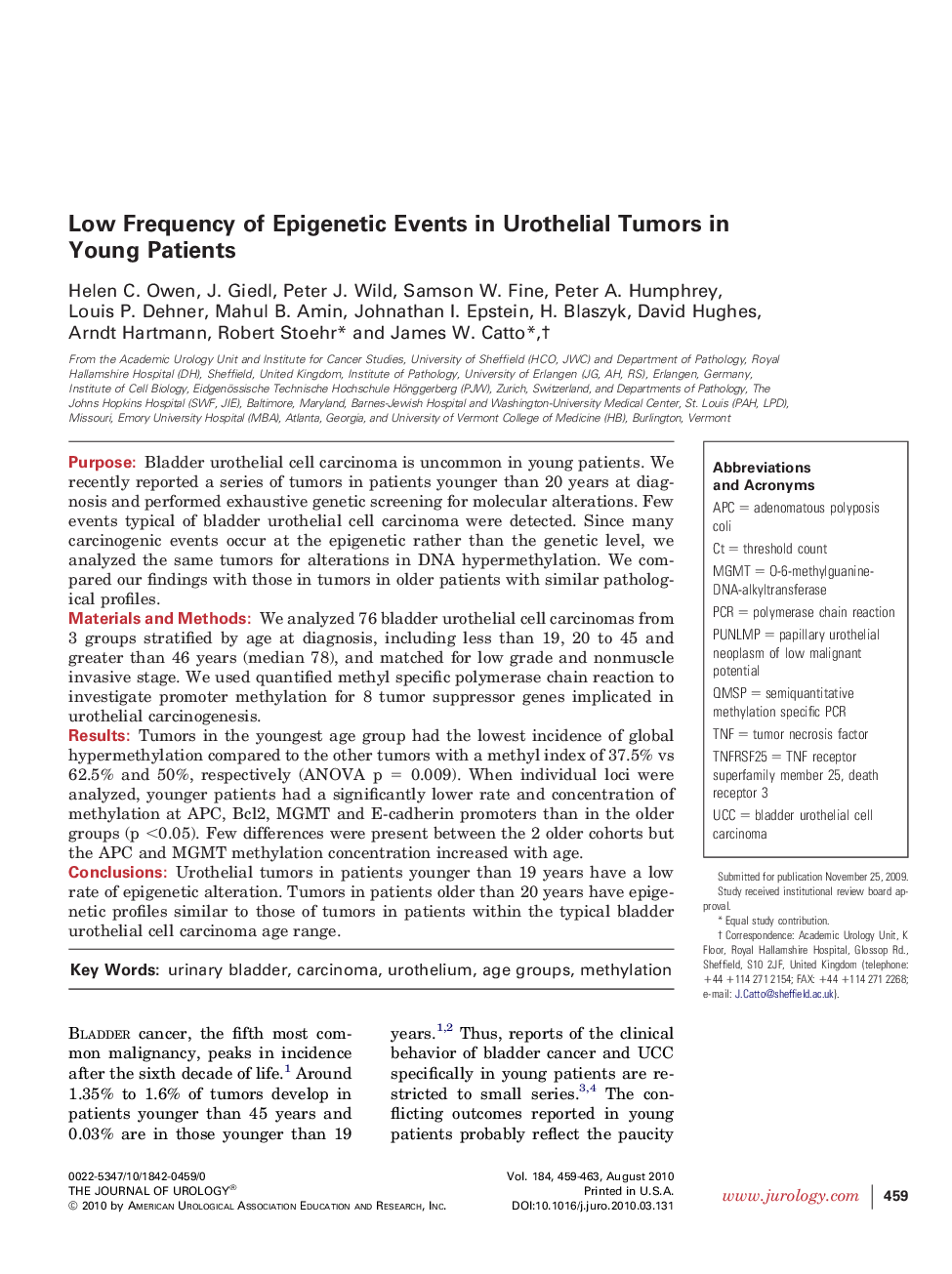| Article ID | Journal | Published Year | Pages | File Type |
|---|---|---|---|---|
| 3869413 | The Journal of Urology | 2010 | 5 Pages |
PurposeBladder urothelial cell carcinoma is uncommon in young patients. We recently reported a series of tumors in patients younger than 20 years at diagnosis and performed exhaustive genetic screening for molecular alterations. Few events typical of bladder urothelial cell carcinoma were detected. Since many carcinogenic events occur at the epigenetic rather than the genetic level, we analyzed the same tumors for alterations in DNA hypermethylation. We compared our findings with those in tumors in older patients with similar pathological profiles.Materials and MethodsWe analyzed 76 bladder urothelial cell carcinomas from 3 groups stratified by age at diagnosis, including less than 19, 20 to 45 and greater than 46 years (median 78), and matched for low grade and nonmuscle invasive stage. We used quantified methyl specific polymerase chain reaction to investigate promoter methylation for 8 tumor suppressor genes implicated in urothelial carcinogenesis.ResultsTumors in the youngest age group had the lowest incidence of global hypermethylation compared to the other tumors with a methyl index of 37.5% vs 62.5% and 50%, respectively (ANOVA p = 0.009). When individual loci were analyzed, younger patients had a significantly lower rate and concentration of methylation at APC, Bcl2, MGMT and E-cadherin promoters than in the older groups (p <0.05). Few differences were present between the 2 older cohorts but the APC and MGMT methylation concentration increased with age.ConclusionsUrothelial tumors in patients younger than 19 years have a low rate of epigenetic alteration. Tumors in patients older than 20 years have epigenetic profiles similar to those of tumors in patients within the typical bladder urothelial cell carcinoma age range.
